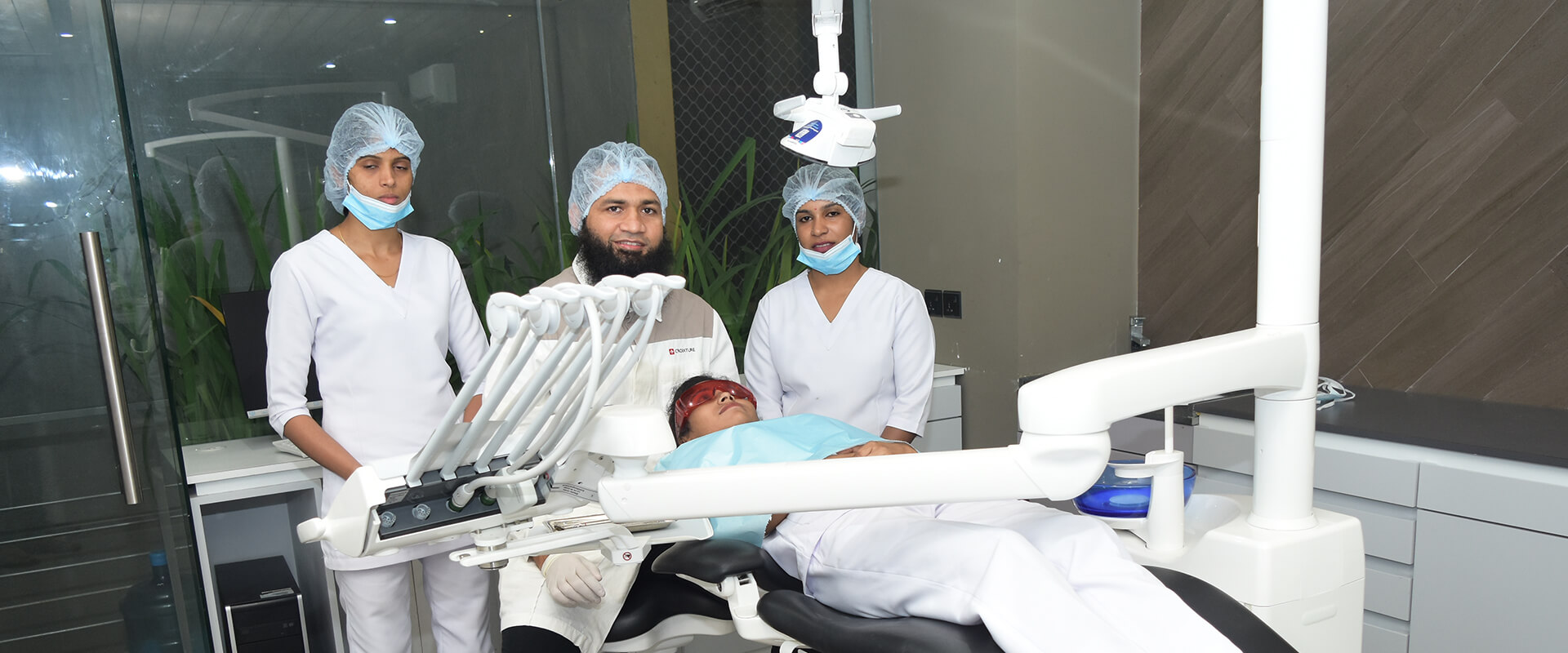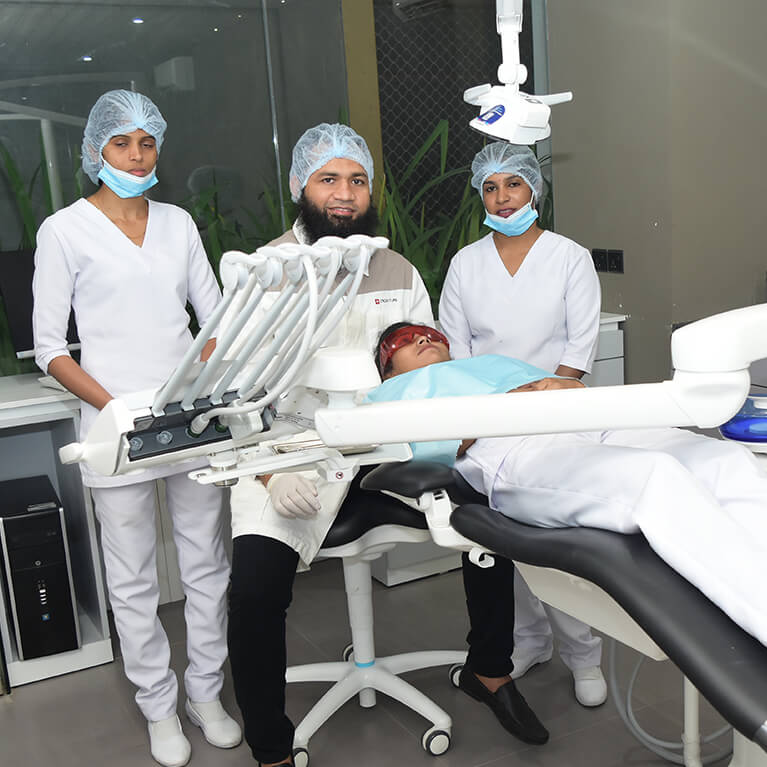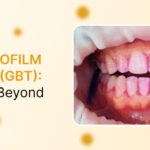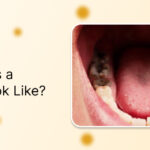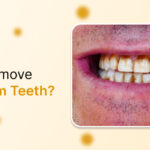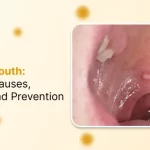Tobacco effects on your oral health
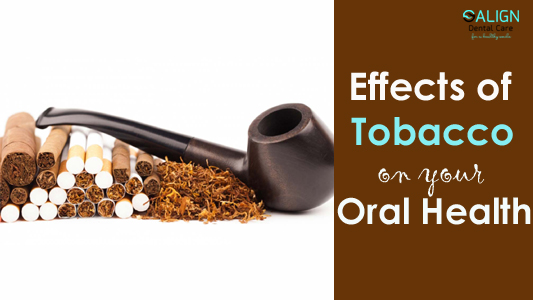
Persons who keep consuming tobacco develop many fatal diseases. No matter whether you smoke, chew or sniff tobacco, the substances present in tobacco products will penetrate deeper inside your body. It provokes a plethora of ongoing complications like stroke, heart attack, Type 2 Diabetes, Pneumonia and much more. Many people have written about this and you might also aware of how this habit ruins our health.
As the oral cavity is constantly exposed to tobacco products while ingesting, the mouth is the primary victim of tobacco. Except oral cancer, many people don’t realize the havoc of tobacco on our dental health which has been addressed in this article.
Read More…6 Harmful effects of eating without teeth
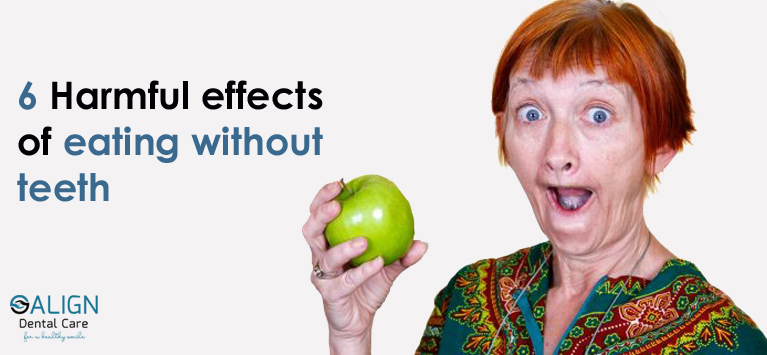
Apart from the social embarrassment, speech impediment and cosmetic flaws, missing teeth will cause many long-term irreversible damages to your health if you prefer eating with no teeth.
Few people feel convenient in eating with missing teeth or without appliances like dentures. Despite they become familiar with this practice, it will become detrimental to their mouth and health over time. This article deals with the harmful consequences of eating up without teeth.
Read More…Foods to fight against calcium deficiency for your teeth
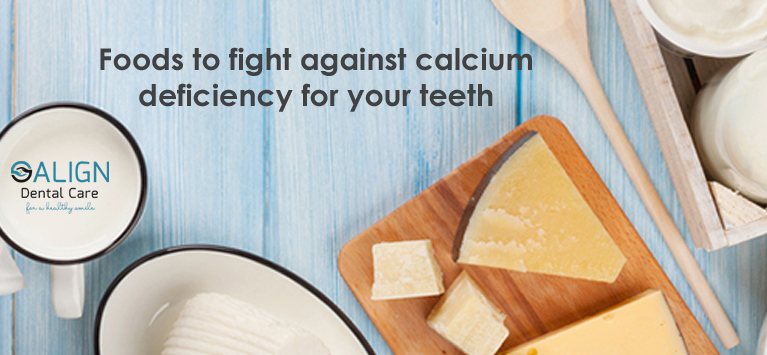
Our teeth consist of the same hard, inorganic materials like our bones. Calcium plays a dominant role in the healthy development of teeth as well as our bones. Our teeth are composed of a mineral called hydroxyapatite that is made up of the combination of calcium and phosphate. The calcium present in teeth provides the fortitude and protects the sensitive nerves present inside a tooth.
In general, calcium present in our body is constantly breakdown as we use our bones and teeth. Our body can regenerate calcium to rebuilt the lost mineral. Besides this, our body can store the excess calcium in our bones and teeth that eventually helps in fortifying them.
Read More…Common diseases that cause tooth decay
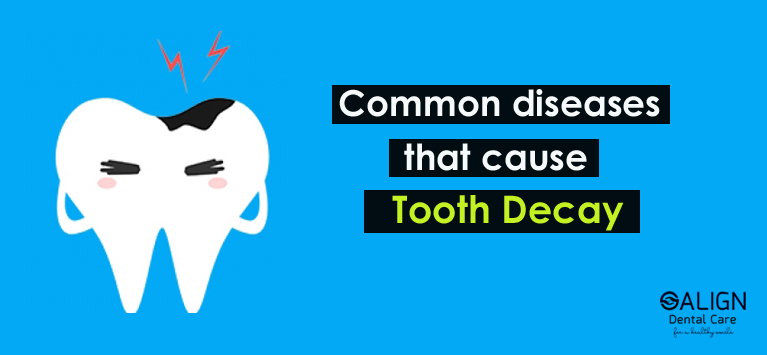
You might be wondered when your dentist asked about your lifestyle and day to day activities while treating a decayed tooth. Tooth decay is not just a common oral problem that occurred with bacterial invasion on your teeth. Such dental caries can also be stimulated because of existing disorders or abnormal health conditions. It means cavities can happen with much more than poor oral care and food items you take. It is because the dentists are looking for your medical history to pinpoint the root cause of cavities at times.
Read More…What causes pain in teeth fixed with dental crowns?
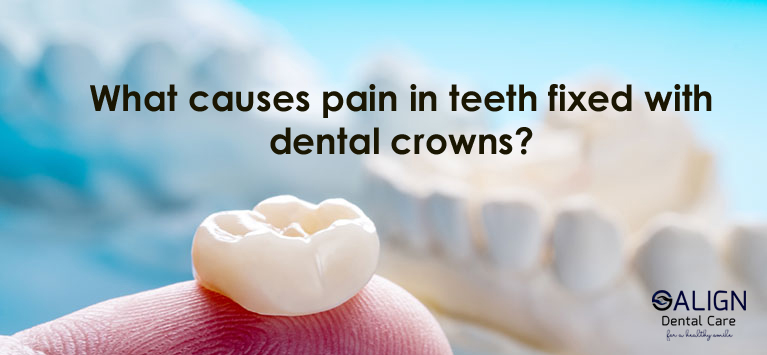
When you seek in-office dental care to fix cracked, broken teeth or severely damaged teeth, dental doctors place a tooth crown on top of the problematic tooth. Moreover, dental crowns are mandatory to enclose the root canal filled tooth. Dental crowns are tooth-shaped caps that can be mounted over the tooth surface to regain its appearance and strength.
Cementing a dental crown on a damaged tooth does not mean the treated tooth is no longer vulnerable to dental ailments. It is also susceptible to infection because of the tooth’s remaining portion present beneath the prosthetic appliance.
Read More…What are the common tongue problems and Why do they occur?
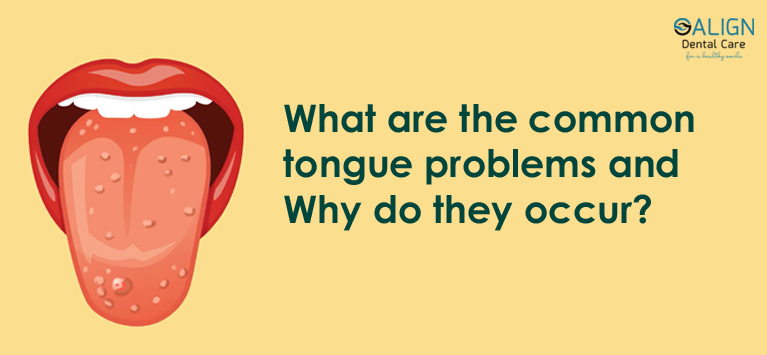
The tongue is a muscular organ with no intrinsic bones and it is covered with lingual membranes. The upper surface of the tongue contains small bumps called Papillae that give the tongue its rough texture. The taste buds also present between the small nodules present over the surface and base of the tongue. Apart from sensing the taste of a dish and communication, the tongue plays a crucial role in breathing as well. Moreover, tongue aids in maintaining the shape of our mouth and face.
Read More…What is Orthognathic Surgery?
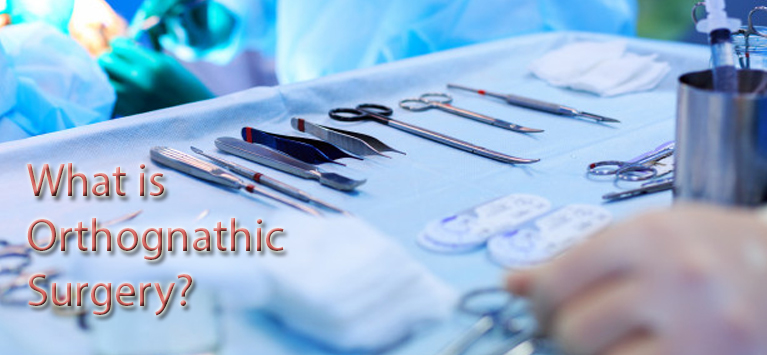
Orthognathic surgery is also called as corrective jaw surgery. This surgery is done by an oral and maxillofacial surgeon to repair a broad range of minor and major skeletal and dental defects, including deformation of the jaws and teeth.
Surgery can enhance respiration, biting, and speech. Although the appearance of the patient may be significantly changed as a result of the procedure, Orthognathic surgery is done to correct functional issues.
For a variety of reasons, your jaw may be misaligned. Maybe you had an injury that wasn’t properly fixed. Things may just have grown that way. Any of the conditions below may suggest the need for corrective jaw surgery.
>Difficulty in biting food or chewing
>Headaches and TMJ pain
>Difficulty swallowing
>Too much wear of the teeth
>Facial injury
>Birth defects
>Sleep apnea
>Protruding jaw
>Inability to keep the lips together without straining
>Chronic mouth breathing
>Receding chin and lower jaw
>Open bite, overbite, and underbite
>Snoring
Treatment plan
For most cases, before surgery, an orthodontist puts braces on the teeth. Normally, the braces are on for 12 to 18 months before the treatment to level and align the teeth in preparation for treatment. To build your treatment plan, oral and maxillofacial surgeons and orthodontists work together.
X-rays, models, and pictures of your teeth are a portion of your jaw surgery preparation. Sometimes, the variation in how teeth fit together will need either the teeth to be reshaped, the teeth to be covered with crowns or both to complete correction.
Computer- treatment preparation, 3D- CT scanning, and temporary orthodontic anchoring tools can be used to aid in teeth mobility and to reduce the braces period. Such efforts also remove the need for jaw surgery entirely.
Virtual surgical planning (VSP) can also be used to direct the surgeon to match and correct the location of the jaw section for the most appropriate outcome during the operation.
Before the procedure
As said above, Orthognathic surgery is generally performed by an oral and maxillofacial surgeon. Surgery is normally performed under general anesthesia. Surgery is performed in the hospital, which includes a stay of two or four days.
During the procedure
Surgery will usually take place inside your mouth, and there are no facial marks on your jaw, chin, or around your mouth. However, tiny incisions can often be needed outside your mouth.
The surgeon makes cuts to the jawbones and positions them in the correct place. Upon completion of the jaw movement, cables, screws, rubber bands, and tiny bone plates may be used to lock the bones into their new location.
For certain cases, the jaw can be reinforced with extra bone. The bone is transferred from your rib, hip or leg by your surgeon and sealed with screws and plates.
After the procedure
Your doctor will be giving you instructions after the surgery. Usually, they include:
>Foods to be eaten
>Oral hygiene habits
>Stopping strenuous tasks
>Avoiding Smoking habits
>Medicines to manage pain
>When to go back to school or work, usually in one to three weeks
Result
Initial jaw healing usually takes around 6 weeks after the operation but it can take up to 12 weeks for full healing.
>Correcting your teeth and jaws with a jaw surgery will result in:
>Balanced look in your lower face
>Improved Teeth Function
>Health benefits such as enhanced sleep, respiration, swallowing and chewing
>Improvement of speech disabilities
>Improved aesthetics
>Enhanced self-esteem
Dental appliances to supplement flossing
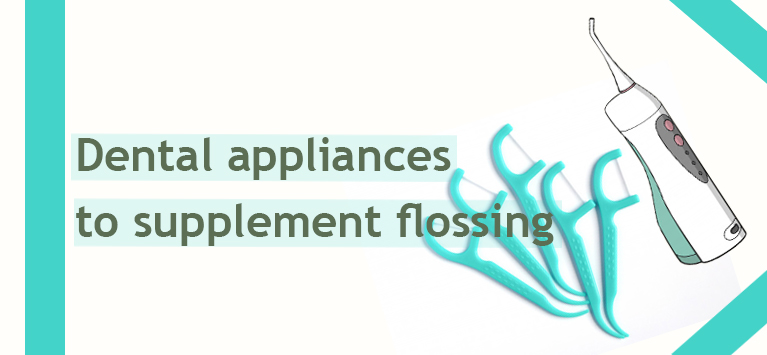
Are you brushing your teeth regularly?
Surely most answer will be yes
Are you brushing your teeth twice a day?
Now the answer will turn into 50% Yes – 50% No
Are you flossing your teeth at least once a day regularly?
Definitely, the answer will not even touch 50% of yes.
You may think flossing takes more time and cause pain, but its benefits are great and unbelievable.
Dentists encourage adding flossing habits in their daily dental care routines. Here are some dental appliances that replace the traditional flossing method.
Soft picks
These are disposable type toothpicks made up of synthetic rubber. Their bristles are soft that gently remove dislodge the food, plaque, and massage gums. The handle is round-shaped, which helps to reach the back of your mouth as well as sides.
This is very difficult when you just use a toothbrush to clean your teeth. This appliance is great for those who undergo orthodontic treatment and easy to use with bridges and implants.
Floss picks
These P shaped plastic toothpicks that are now replacing those wooden toothpicks are also known as flosser picks. They are now popular and mostly replaced traditional flossing methods. Floss picks are very effective in removing food debris and plaque in between the teeth and very easy to use.
Their tail end is thin and acts as a toothpick, and on the other end, it is bow-shaped with thread attached. They are very easy to handle and saves a lot of time when compared to the traditional method of flossing.
Air flossers
Air flossers consist of soft tips that produce micro-droplets of liquid and air to clean teeth and gums. They are a bit larger than a normal electric toothbrush, and they travel easily too. Many people like its slim design and these modern air flossers are nowadays are very effective in removing plaques gently.
Oral irrigators
Oral irrigators are one of the best flossing supplements trending now. They look similar to air flossers and are a very effective one. They come with different types of attachable tips, and you can choose the better one that suits you. Simply water is filled in the reservoir and attached to the base.
Then the required tip is attached to the handle and pressure is set to clean the plaques in between the teeth and gums. Nowadays, like air flossers, oral irrigators are also very effective in removing plaques, and they have the tendency to remove up to 99% of plaques.
Benefits of flossing
-Flossing helps in maintaining proper oral hygiene, and it is one of the best preventive oral care.
-Protects your teeth from staining due to plaque and tartar buildup
-Eliminates bad breath
-It is more effective in maintaining oral hygiene than brushing alone.
-The key factor is, it prevents gum disease.
Poor oral care increases the risk of Alzheimer’s disease

Are you experiencing poor oral hygiene? Do you know that there is a risk of Alzheimer’s disease associated with bad oral habits? Does poor oral hygiene lead to Alzheimer’s disease? Here ‘s what you should know…When oral hygiene is neglected, bacteria called Porphyromonas gingivalis enters the bloodstream through daily habits such as eating, chewing and the way the teeth are brushed. This can be carried to various parts of the body especially the brain and results in unwanted diseases.
Read More…Important tips to prevent gum disease during pregnancy

Pregnancy is one of the most important time periods for any woman and it is vital that health is maintained in top-notch condition throughout pregnancy. Here, in this article, let us talk about some important tips that ought to be considered to make sure that oral health is maintained in good order:
Read More…




